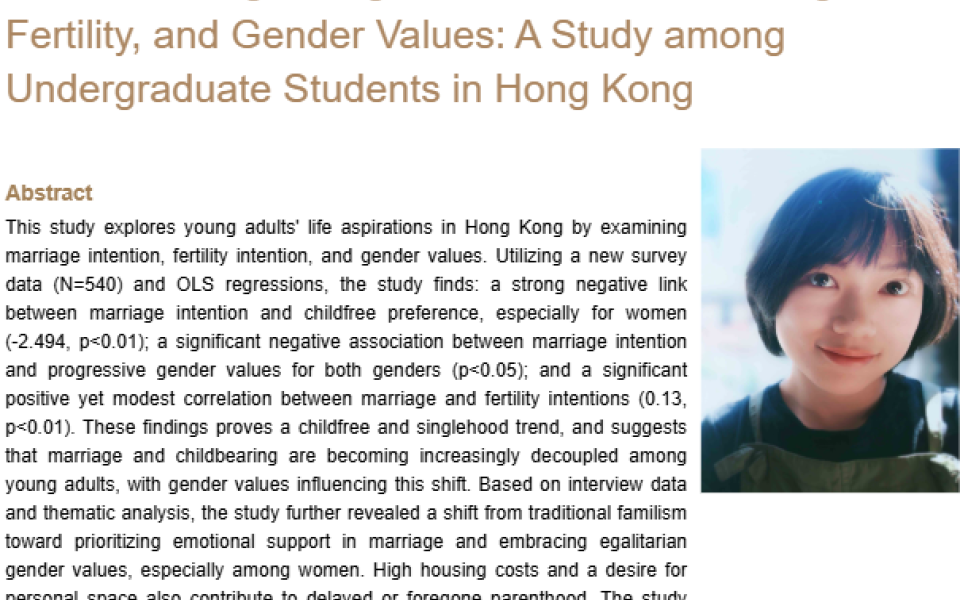Abstract
This study explores young adults' life aspirations in Hong Kong by examining marriage intention, fertility intention, and gender values. Utilizing a new survey data (N=540) and OLS regressions, the study finds: a strong negative link between marriage intention and childfree preference, especially for women (-2.494, p<0.01); a significant negative association between marriage intention and progressive gender values for both genders (p<0.05); and a significant positive yet modest correlation between marriage and fertility intentions (0.13, p<0.01). These findings proves a childfree and singlehood trend, and suggests that marriage and childbearing are becoming increasingly decoupled among young adults, with gender values influencing this shift. Based on interview data and thematic analysis, the study further revealed a shift from traditional familism toward prioritizing emotional support in marriage and embracing egalitarian gender values, especially among women. High housing costs and a desire for personal space also contribute to delayed or foregone parenthood. The study sheds light on how structural constraints and changing values shape life choices among young, educated adults in Hong Kong.
